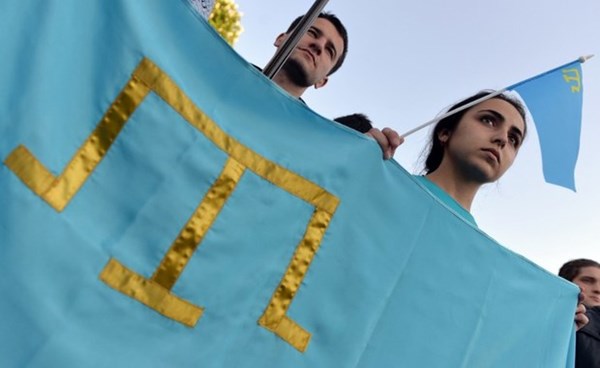Crimean Tatars seek to save their mother tongue
Every year, on the 21st of February, International Mother Language Day is celebrated worldwide. About a half of the 6,000 world languages are threatened with extinction. The Crimean Tatar language is the third most spoken language in Ukraine. However, despite this fact, according to the official data of UNESCO, the language is quickly dying, as reported by Radio Svoboda.
Now, some media, universities and activists have taken on the challenge of bringing the language back to life. Newspapers and magazines are being published in the Crimean Tatar language and it is being studied and taught in schools and universities. The Ukrainian TV Channel ATP airs 35% of its broadcasts in the Crimean Tatar language and even translates movies and Turkish shows into this language.
The language of the Crimean Tatars goes back to the 13th century and, contrary to popular belief, it is different than the language spoken in Tatarstan, as experts have noted. Recently, according to a statistical evaluation, the number of native speakers is sharply decreasing. The more common Russian language has replaced the Crimean Tatar language in many families. In this regard, the Kiev National University named after Taras Shevchenko opened a new speciality “Crimean Tatar Language and Literature.”
The first Vice-Rector of the University for Research and Educational Work, Vladimir Bugrov, explained that the decision to open the new specialty was made a few days after the annexation of Crimea by Russia. There are two native Crimean Tatar speakers among the teachers of this speciality – Afiza hodja and Sabriye hodja (hodja is a traditional title for a teacher).
“It is a grave issue for our people; the young people don’t know their native language,” Uryane stated.
A student of the Kiev National University named after Taras Shevchenko, Uryane told Radio Svoboda why she came to Kiev to study her native language. She was born in Simferopol and when she was a child Uryane spoke the Crimean Tatar language with her family. However, the situation changed when she went to school.
“I’m very ashamed to recognize this but the Russian language gradually replaced the native Crimean Tatar language,” Uryane stated. Over time, she started to study Crimean Tatar history, culture and traditions in detail. She came to Kiev in order to save the identity of her people. “My dream is to create publishing house, which will publish fiction in the Crimean Tatar language. In addition to the content, I want these books to stand out for the quality of printing and modern design,” Uryane stated.
According to her, 20 Crimean Tatars study at the Kiev National University named after Taras Shevchenko. She sees new possibilities and perspectives for promoting the Crimean Tatar language opened before them. A lawyer for the public organization Wikimedia Ukraine, Levon Azizyan, told Krym.Realii that Wikipedia has been publishing in the Crimean Tatar language since 2008.
This project can be of significant assistance in the preservation of the Crimean Tatar language and culture because Wikipedia is the most popular information resource in the world. According to Azizyan, the Crimean Tatar version of Wikipedia is updated at a slow pace. This is due to the fact that the team is desperately short of people who are ready to update articles on a voluntary basis.
“The language is a gift, which unites people in a nation,” Galina Usatenko said.
An Assistant Professor at the Institute of Philology of the Kiev National University named after Taras Shevchenko, Galina Usatenko, noted in her comment to Radio Svoboda that language is a gift which unites people in a nation and identifies each nation among others.
“For instance, how many words in the Ukrainian language do we have for the identification of snow? No more than 10 – snow crust, soft hail, low drifting snow and several others. Meanwhile, the Eskimos have 50; there is a word for snow that just fell and also for settled snow, the snow in the evening and in the morning, the first and the last snow,” Galina Usatenko said.
According to her, native languages were the original cultural border, the boundary between one and others. The more extensive globalization becomes in the modern world, the need for speakers of the individual languages of different peoples becomes sharper. Consequently, the everyday use of the language in education, literature, mass culture and science, is almost the only way to preserve a people’s identity in a globalized world.
